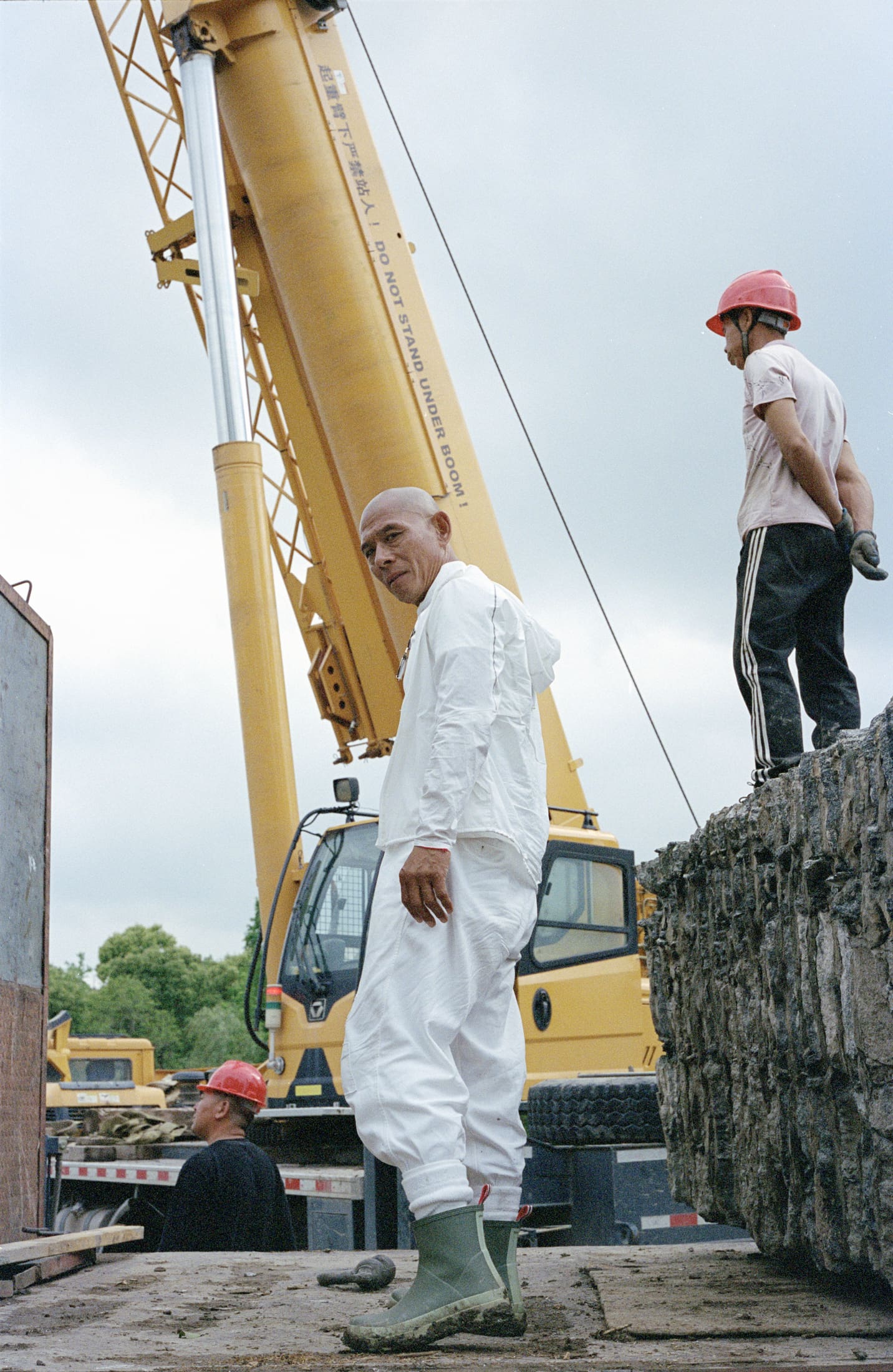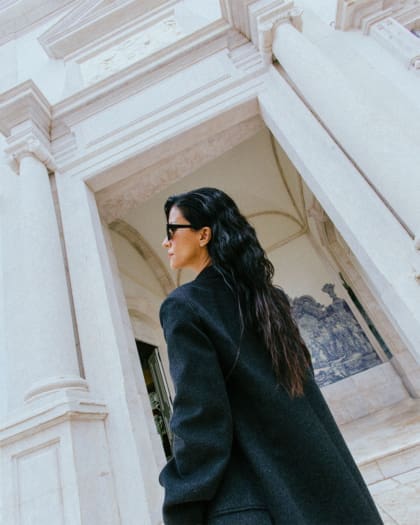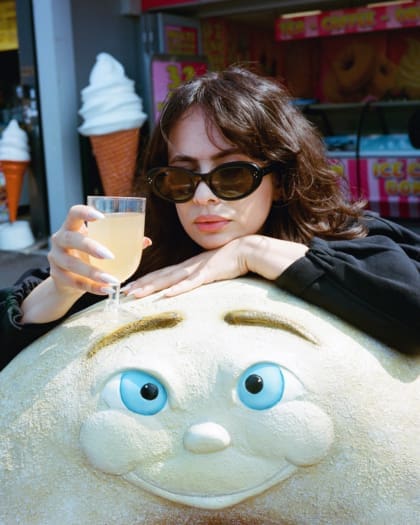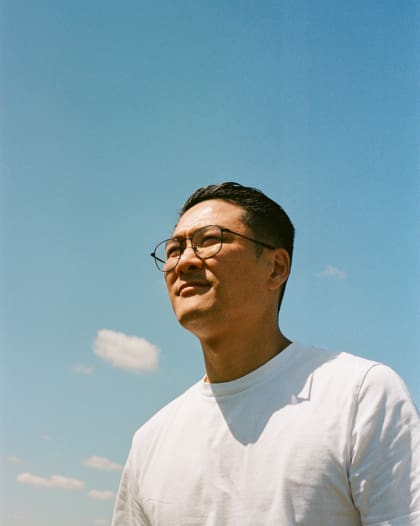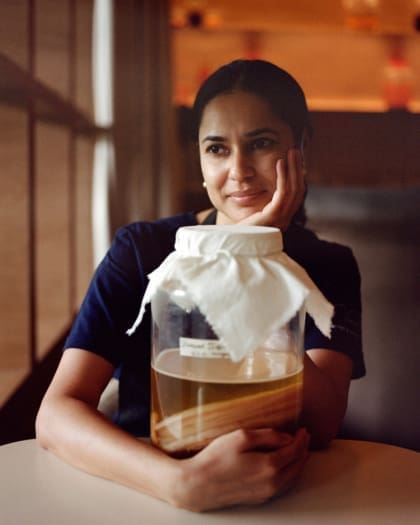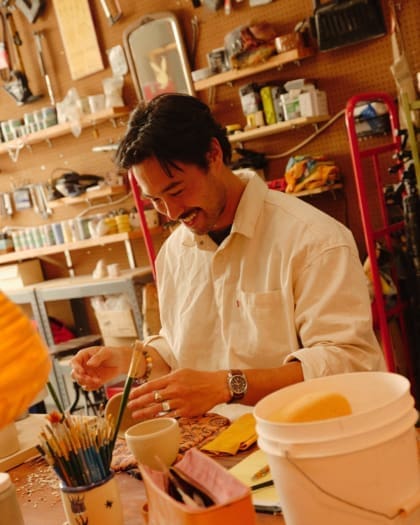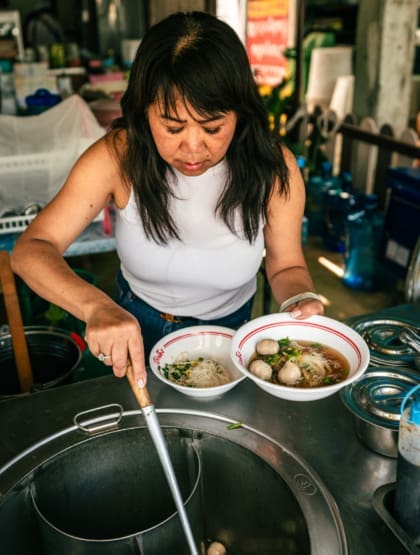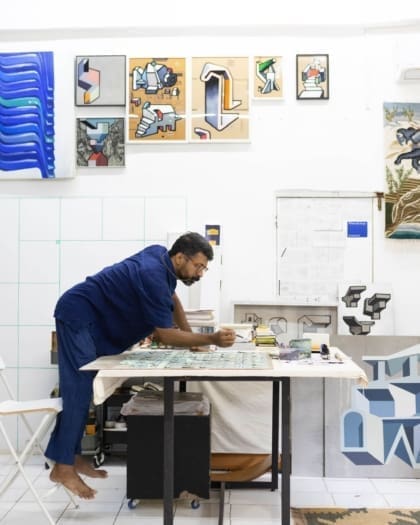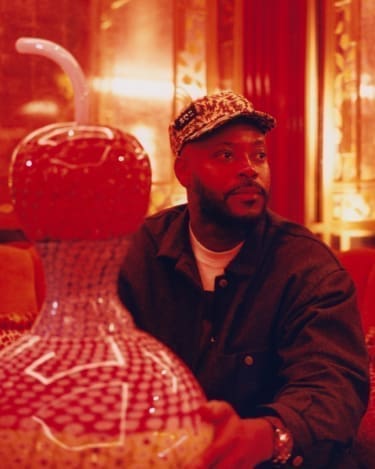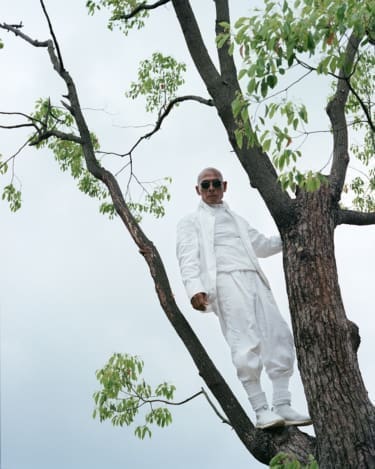
Chinese artist Zhang Huan on building a Buddhist garden in Shanghai
Zhang Huan on relocating from New York to China, his hometown in Henan, and a new rock-filled garden behind the Amanyangyun hotel in Shanghai, which he considers the peak of his career
On the first truly warm day of the year, I made my way through Shanghai’s suburban belt to visit Chinese artist Zhang Huan’s secretive new garden project, adjoining his villa behind the Amanyangyun hotel, part of the prestigious Aman hotel group. The streets were lined with peach and cherry blossoms. I arrived at the western entrance, behind the hotel proper, in a gated area under construction, and started to explore.
Zhang was one of the enfant terribles of Beijing’s 1990s ‘East Village’ scene, known for his monumental sculptures and eerie performance art that pushed physical and mental limits. In Zhang’s durational piece 65 kilograms (1994) he hung naked from the ceiling, bound in chains and gagged while two doctors drew blood from his body. In 12 Square Meters, Zhang sat motionless in an outhouse, covered with honey, as flies swarmed over his body. Much of his work provokes the audience to consider questions about the nature of the public and the city.
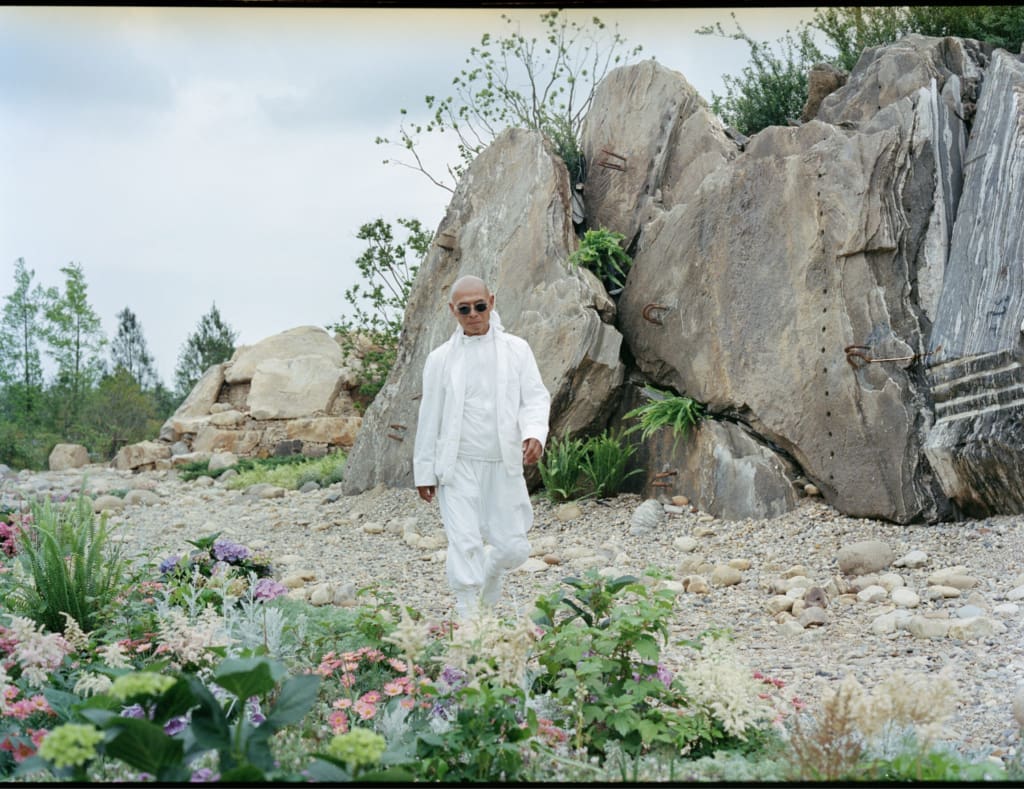
In the years since returning to China from New York in 2005, Zhang Huan has gone from youthful exuberance to self-transcendence. Instead of focusing on individual experiences and feelings, he has placed himself on the scale of nature. The themes of life and death that he has explored throughout his career still fascinate him, but now, on the outskirts of Shanghai, he is engaged in designing a garden that attempts to combine Chinese and Western aesthetics, blending traditional arts of northern and southern China with Buddhist thought. The garden is set to be complete this autumn, and the evolving space will live host performances and art exhibitions.
Zhang came out of his home, dressed from head to toe in white, and met me in the garden.
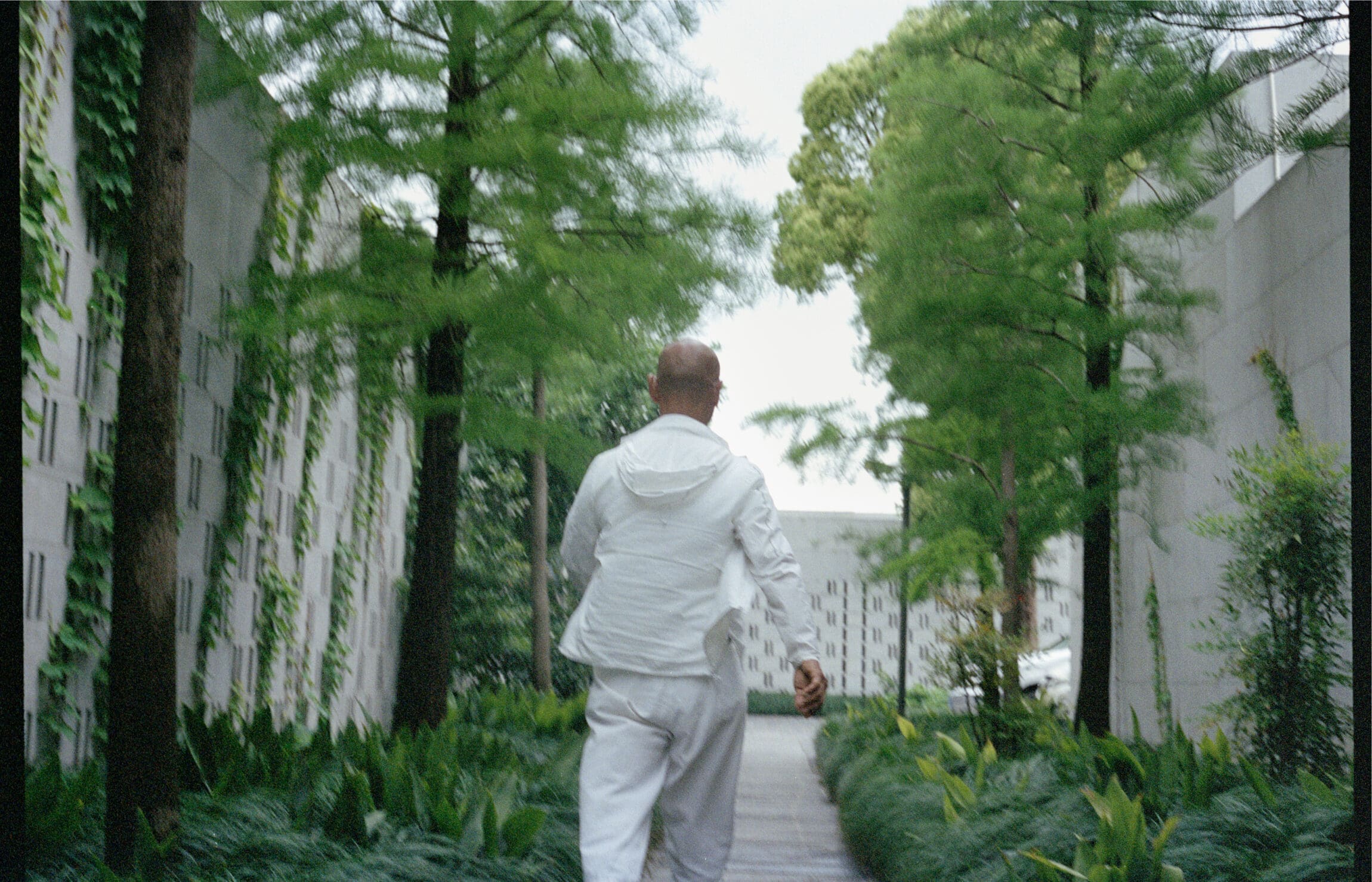
You’ve been in the art world for 30 years. How did it all begin?
When I was studying at the Central Academy of Fine Arts in Beijing in the early 1990s, everyone was full of new ideas; we were all children of the north, and of the cultural revolution. It felt natural for us to build a collective on the outskirts of Beijing; our bodies were all we had, and so they were the medium of our performances. Our life together was the greatest performance of all.
Zhang Huan’s ongoing garden design at Amanyangyun
Tell us about this garden of yours. What are you doing, and how is it related to Aman?
I’ve had this space behind the Amanyangyun hotel for a while. Aman imported 10,000 trees from Jiangxi province and planted them on its grounds. One of them was hollow, and when I first saw it, I was instantly inspired. The hollow tree evoked Buddhist teachings about desire. I devoted myself to reviving the tree, and began building supporting structures around it, which became an entire garden. When the garden is complete this autumn, it will host performances and art exhibitions – sunken into a basement level is a dedicated exhibition space. I hope it will appear neither Japanese, nor Suzhou, nor Western in style, but reflect its own syncretic vision picked up during my 58 years of life.
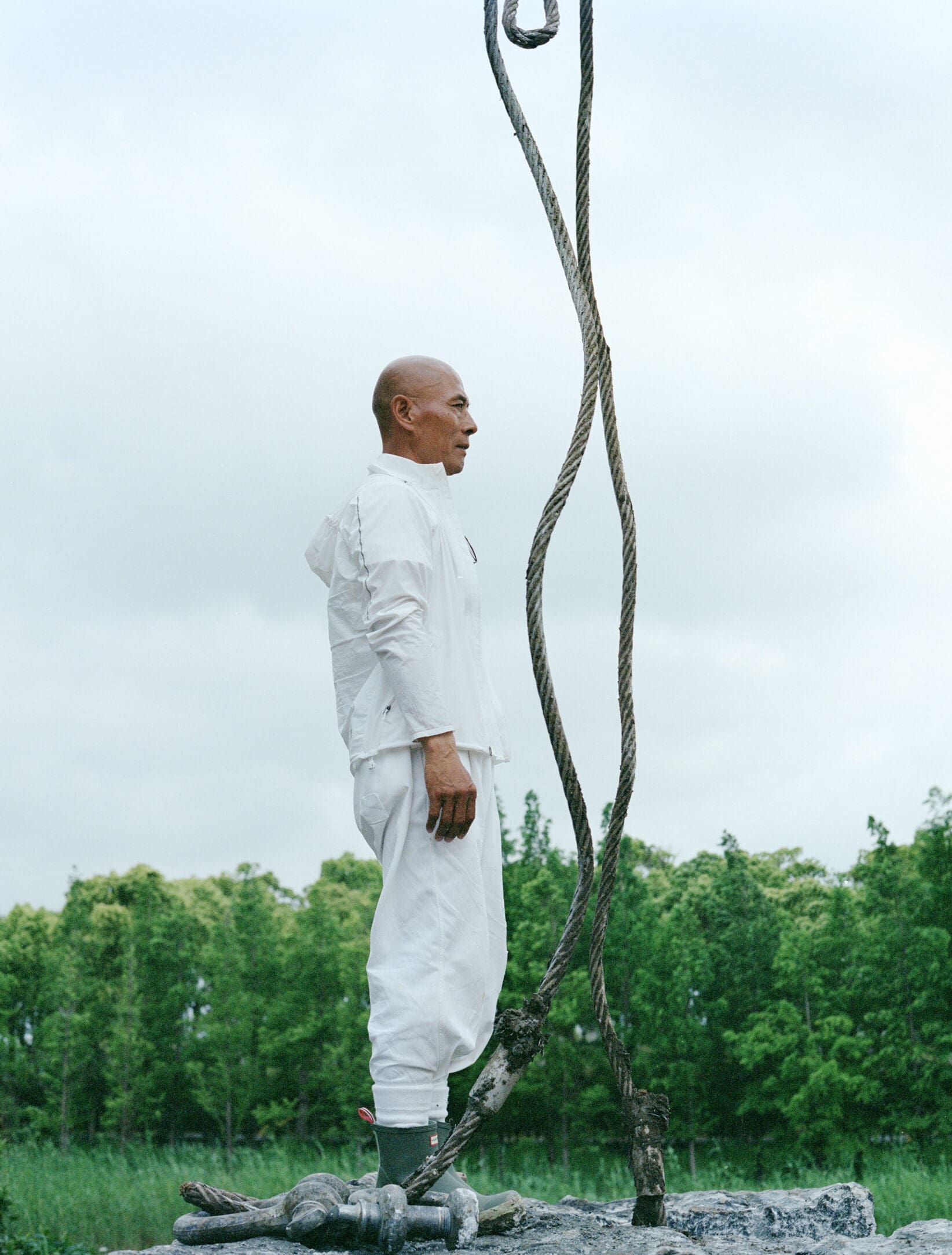
"Shanghai is a modern city that still retains its traditional cultural roots"
Zhang Huan’s movements
Why did you move to New York?
At a certain point, Beijing felt stale for me, so I moved to New York. What I got from my time there was a sense of freedom – New York City is the coolest place in the world. Actually, NYC and Tibet are the two coolest places. New York’s freedom is beyond comparison, but Tibet offers me something spiritual, which I need to recharge regularly. I haven’t been back to New York since 2019; I’ll probably go back sometime soon.
What made you come back to China?
By 2005, I’d reached the end of what I needed to do in New York. I was getting more and more interested in Buddhism and Tibet, and started to feel the need to get to my ancestral home in Henan province. The Chinese language originated there; 80 percent of Chinese people are ancestrally from Henan.
And why Shanghai, not Beijing?
I chose Shanghai for personal and family reasons. I had lived in Beijing for eight years before moving to New York. New York had lost its mystery to me and I wanted to change to a new environment. Shanghai is a modern city that still retains its traditional cultural roots, and I felt it was somewhere that could allow me to concentrate on my creation.
I was born in Anyang, Henan Province. Although it is not as prosperous as Shanghai, I have always loved the landscapes there and I always look forward to returning to my hometown.
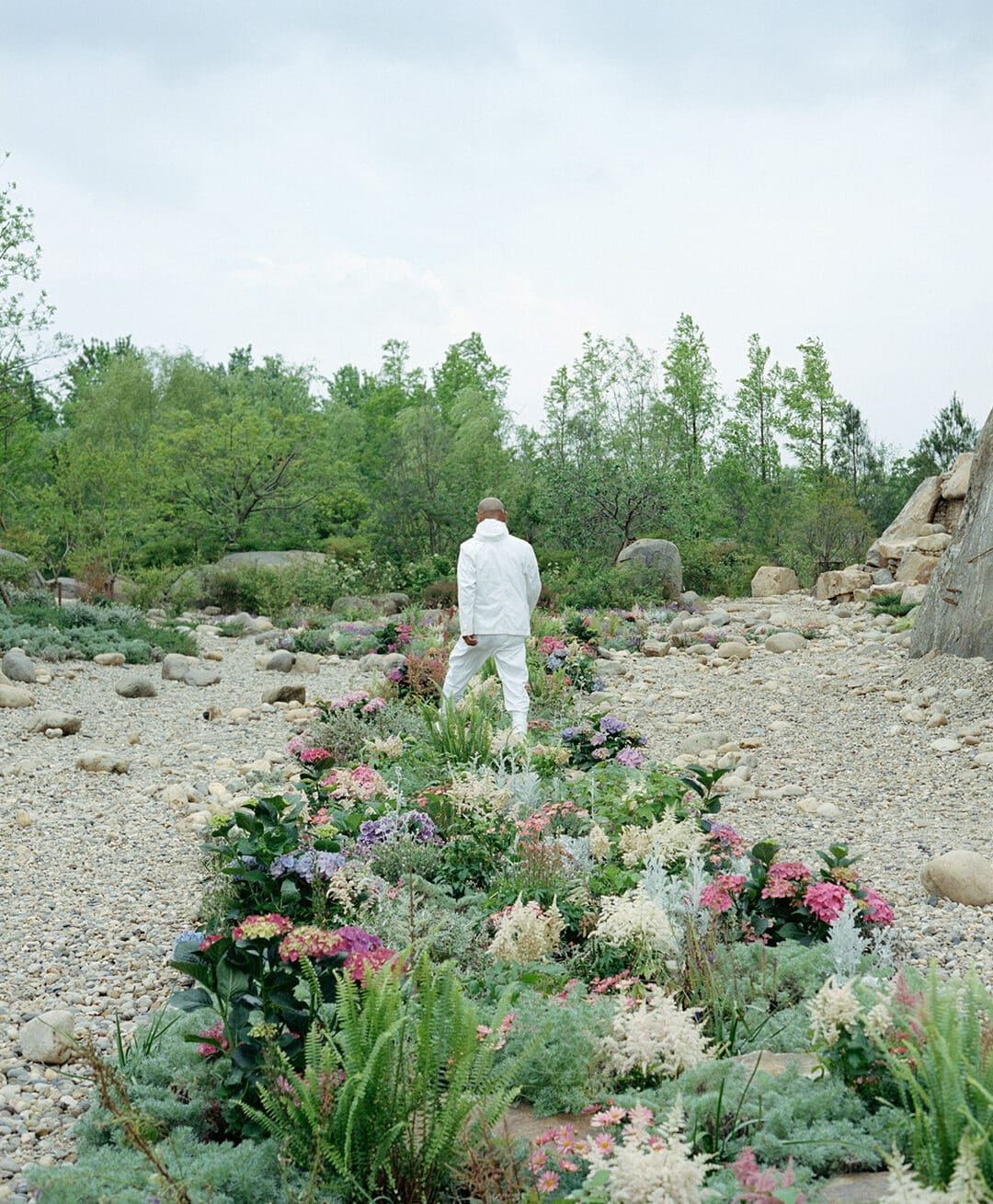
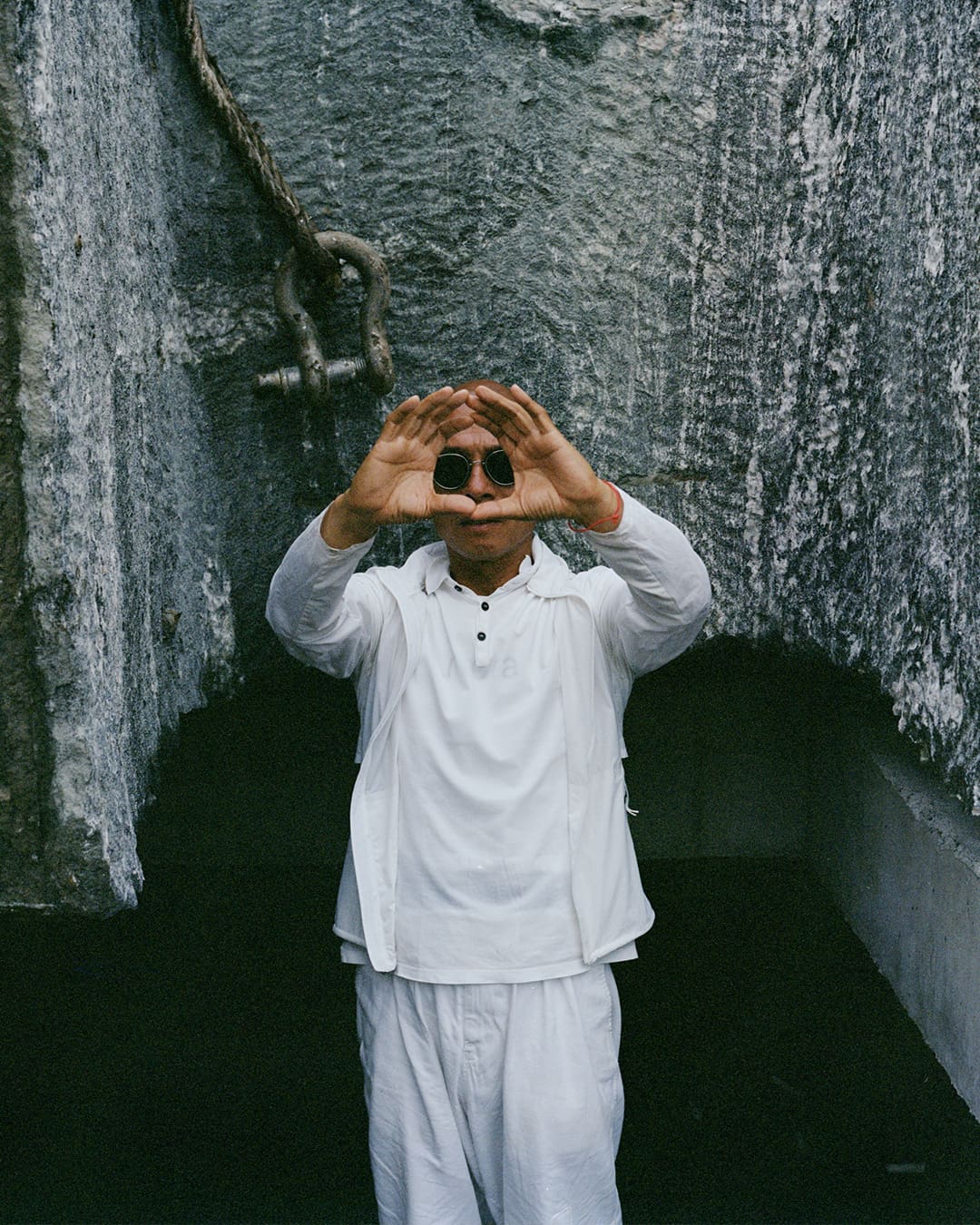
Landscape design is new to you, but it has deep roots in the Chinese artistic tradition.
Back in the 1990s, after East Village was broken up, we made ‘To Add One Meter to an Anonymous Mountain’, in which naked bodies were layered on top of each other in Mentougou. As artists, we express our ideas through our art. The impact we have on this world is very limited, whether in politics or art.
This garden feels like a summary of what I’ve been trying to do. There is a rock in it that’s from a quarry in Hebei, transported by truck. Here in my garden, I can control the space around me, shaping it to my vision. The runaway stone illustrates concepts from Buddhism.
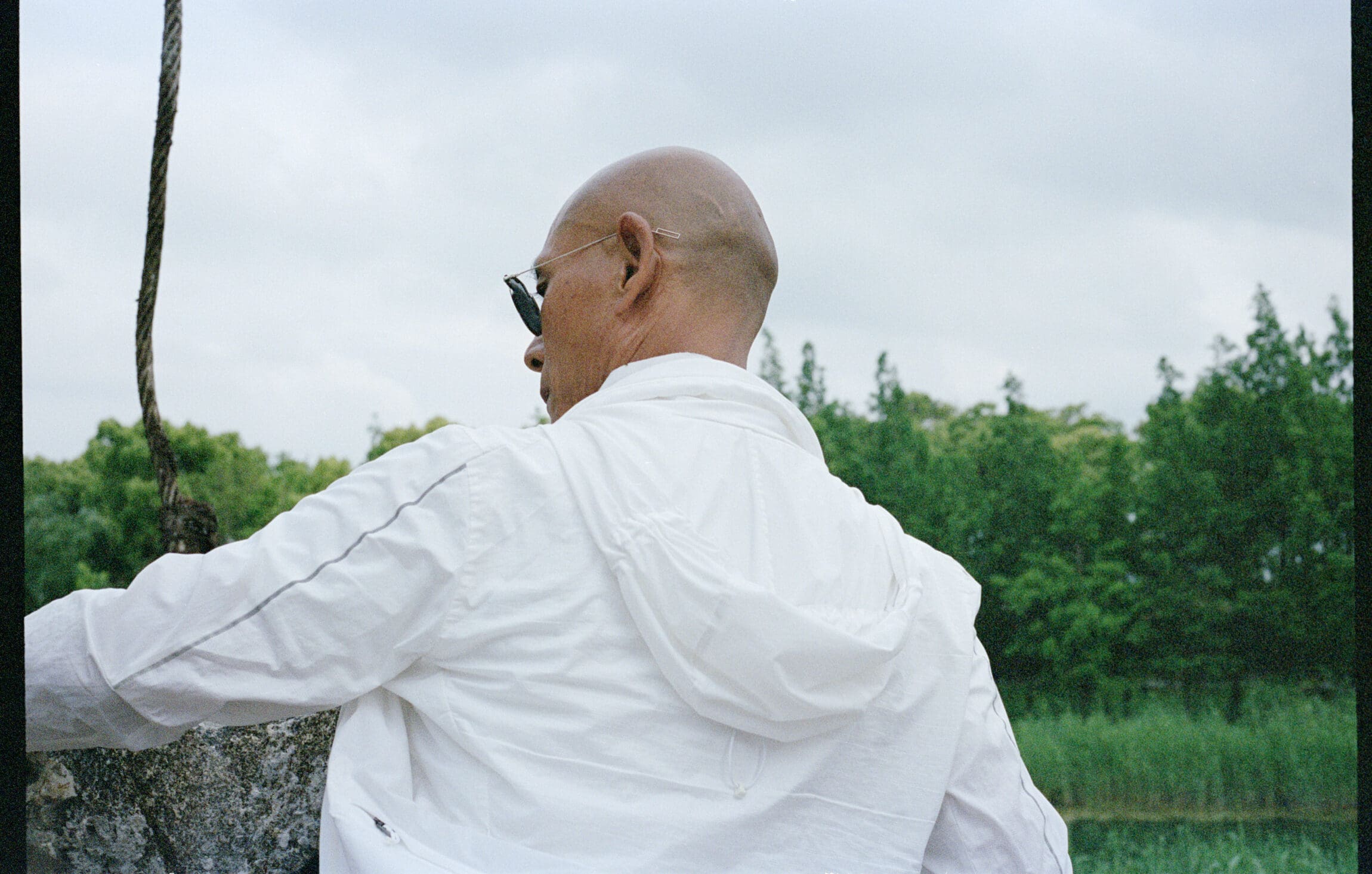
When we think of gardens, we might think of lush plant life, but yours centres on rocks.
And just look at how beautiful it is when the sun hits it! I grew up during the cultural revolution in my grandmother’s home village in Henan, one of China’s oldest and poorest regions. Thousands of years of history are found in the soil there, fragments of pottery, shards of the past. Our lives are like that; the external appearance can be misleading. Deep inside, we hide secrets. We’ve all been here in this world before, and we will come again; the external appearance masks an eternal unity.
